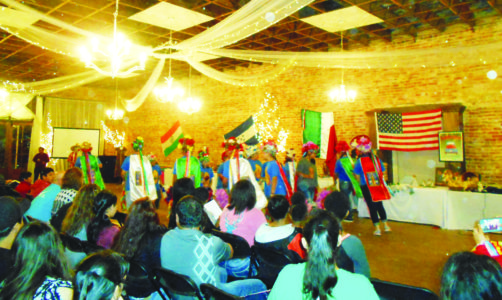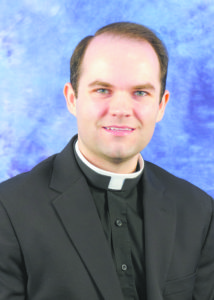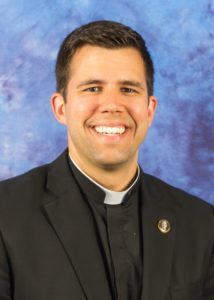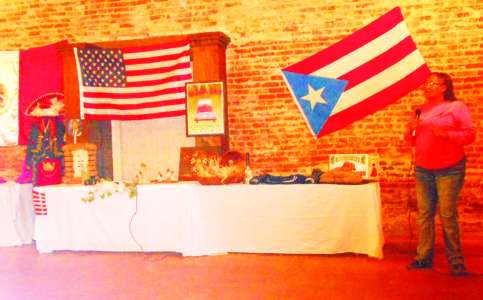
VARNAMAN – Representates de diferentes países presentaron sus culturas durante la noche del encuentro como parte de la Semana Nacional de la Migración. (Foto de Danna Johnson)
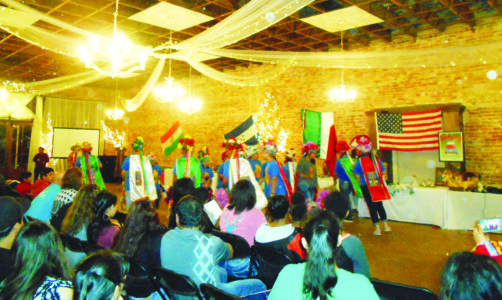
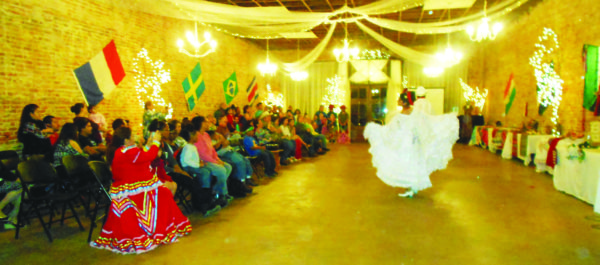
De Danna Johnson
La Semana Nacional de Migración 2017 fue una gran oportunidad de encuentro de diferentes culturas. El Centro de Apoyo al Migrante de Caridades Católicas, la Iglesia Católica de St. James de Tupelo y la oficina de Caridades Católicas de Vardaman, unieron esfuerzos para crear este ambiente de encuentro.
Esta semana de actividades comenzó con la inauguración en St. James de Tupelo con la celebración de Epifanía y con la presentación del video “Los Invisibles”. Mas de 100 personas estuvieron presentes. Todos y todas fueron invitados a compartir sus historias como migrantes en Mississippi. La conclusión de este primer dia fue que: “Migracion es un acto de fe”.
En los siguientes días de la Semana Nacional de Migración, Amelia McGowan, abogada de migración de Caridades Católicas y directora del Centro de Apoyo al Migrante, ofreció talleres informativos y consultas individuales sobre el tema de migración. Esto se llevó a cabo en las comunidades de Ripley, Corinth y Vardaman.
Muchas familias del Deanery V se hicieron presentes. Amelia ha construido confianza y credibilidad con su dedicación, excelente servicio y su pasión por apoyar a las familias migrantes de toda la Diócesis de Jackson.
La Iglesia Católica de San Cristóbal de Pontotoc celebró una misa conmemorando la Semana Nacional de Migración 2017. El Padre Tim Murphy recibió a todos los asistentes, incluyendo al Padre Octavio Escobar, quien nos visitó desde México y quien celebró la Eucaristía en un ambiente de hospitalidad y esperanza. La invitación fue abierta a reflexionar sobre el Salmo 104: “El Señor nunca olvida sus promesas”.
El viernes 13 de enero, la Noche de Expresión Cultural se llevo a cabo en Vardaman. Nancy Sánchez, de la oficina de Centro de Apoyo al Migrante de Caridades Católicas y un equipo de voluntarios hicieron posible este evento de juntar a la diversa comunidad.
Hubieron demostraciones artísticas, comida, bailes de varios países, entre ellos: México, Honduras, Guatemala, Puerto Rico, Colombia e India. Liza May y Sandra Loucios ambas nativas de Vardaman, dieron la bienvenida a todos los asistentes con “Gracia Suprema” y presentando datos culturales tanto de la región del sur y de Vardaman. En palabras del Presidente de la junta directiva de la Oficina de NE de Caridades Católicas, “Esto es algo en lo que necesitamos crecer”. Alrededor de 150 personas de diferentes culturas del NE de Mississippi estuvieron bajo un mismo techo, celebrando lo que todos tenemos en común: nuestra diversidad.
La clausura de esta semana especial estuvo a cargo de la Hermana Gabriela Ramírez de Caridades Católicas de Birmingham, AL. Ella abrió su presentación con la pregunta: ¿Podemos crear una cultura inclusiva?
Dorothy Balser, Directora de la división Comunidad y Ministerios de Alcance Social de Caridades Católicas de Jackson, dijo que “Este ha sido un tema muy poderoso para crear conciencia y educación, y que buscaremos la oportunidad de hacerlo de nuevo en este año.”
La Hermana Ramírez cerró la Semana Nacional de Migración 2017 invitándonos a unirnos en oración, teniendo a Jesús como modelo: “Padre, que todos ellos sean uno, como nosotros somos uno” (Juan 17,21)

